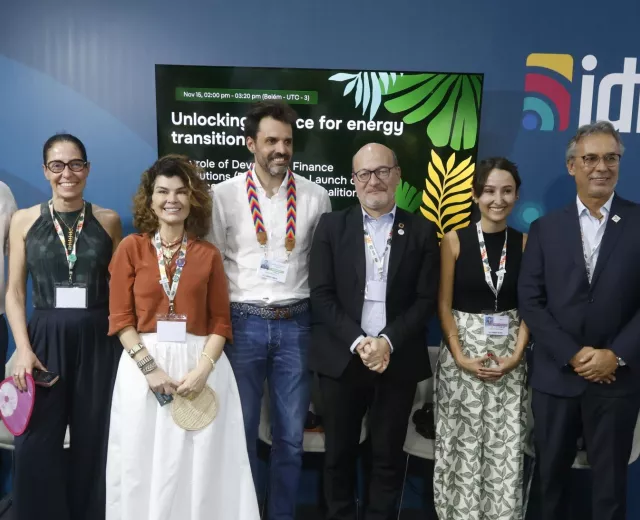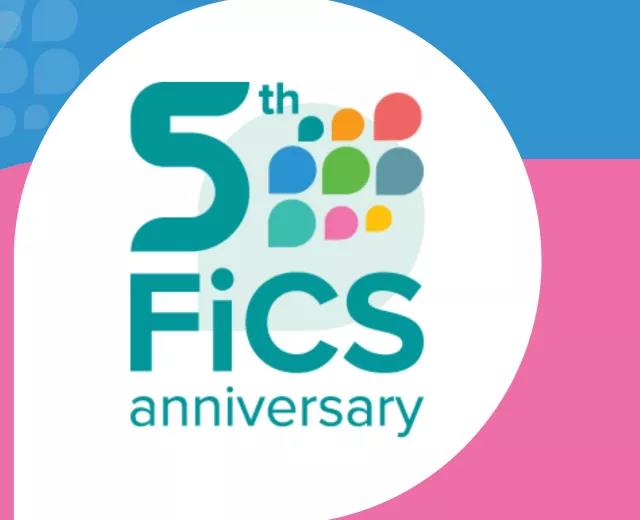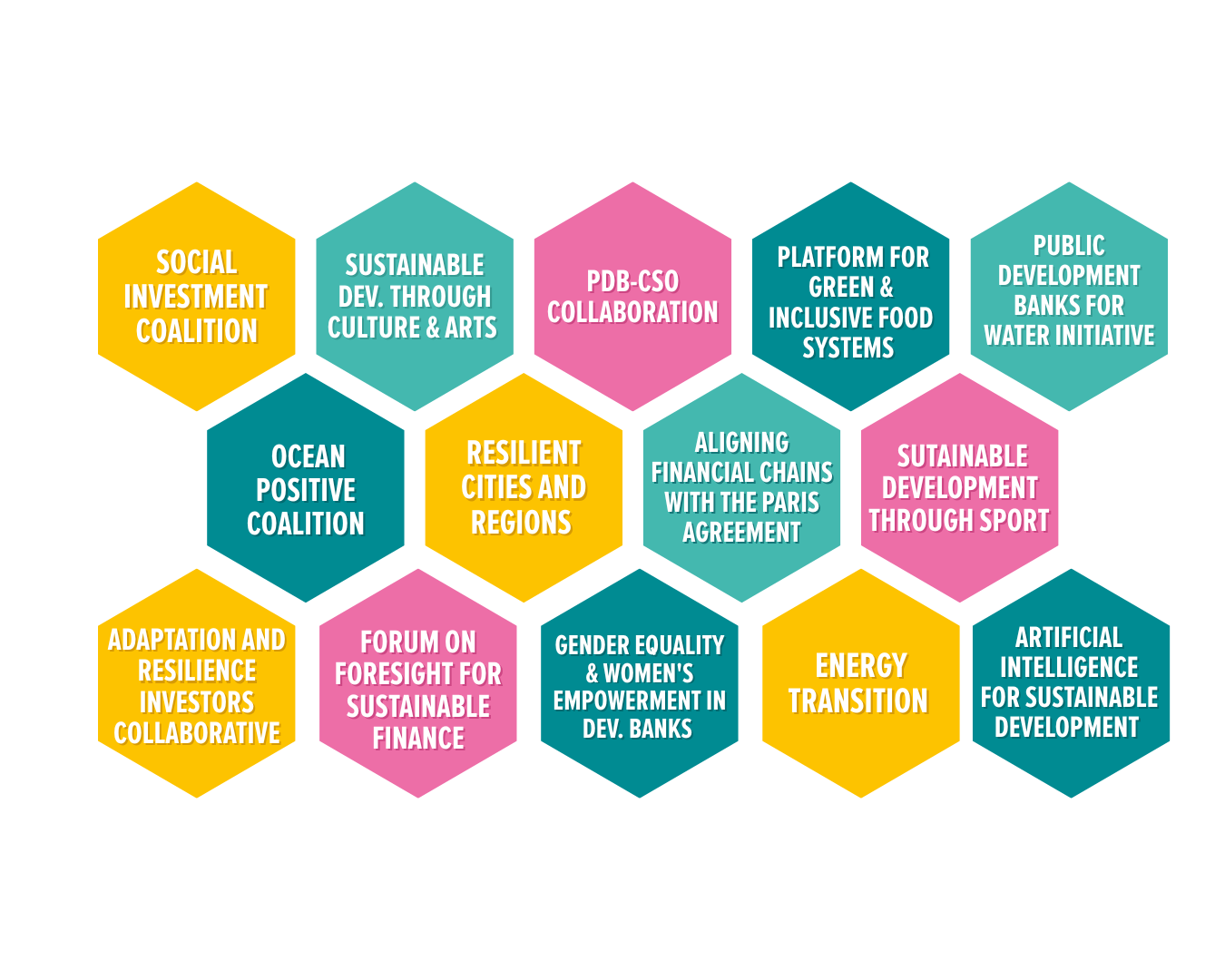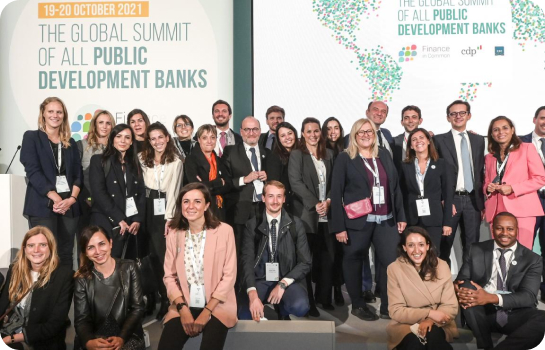Previous editions
Public Development Banks joining forces to transform the financial system towards climate and sustainability
Who we are
Our objective is to strengthen partnerships among PDBs to accelerate the convergence towards shared standards and best practices, to support banks’ commitments to shift their strategies towards sustainability, and to give PDBs more visibility in the global fora discussing international policy issues. By mobilizing PDBs and crucial stakeholders, from private sector to civil society organizations, we aim to encourage more coherent approaches to make the whole development finance system consistent with our common climate and sustainability objectives.
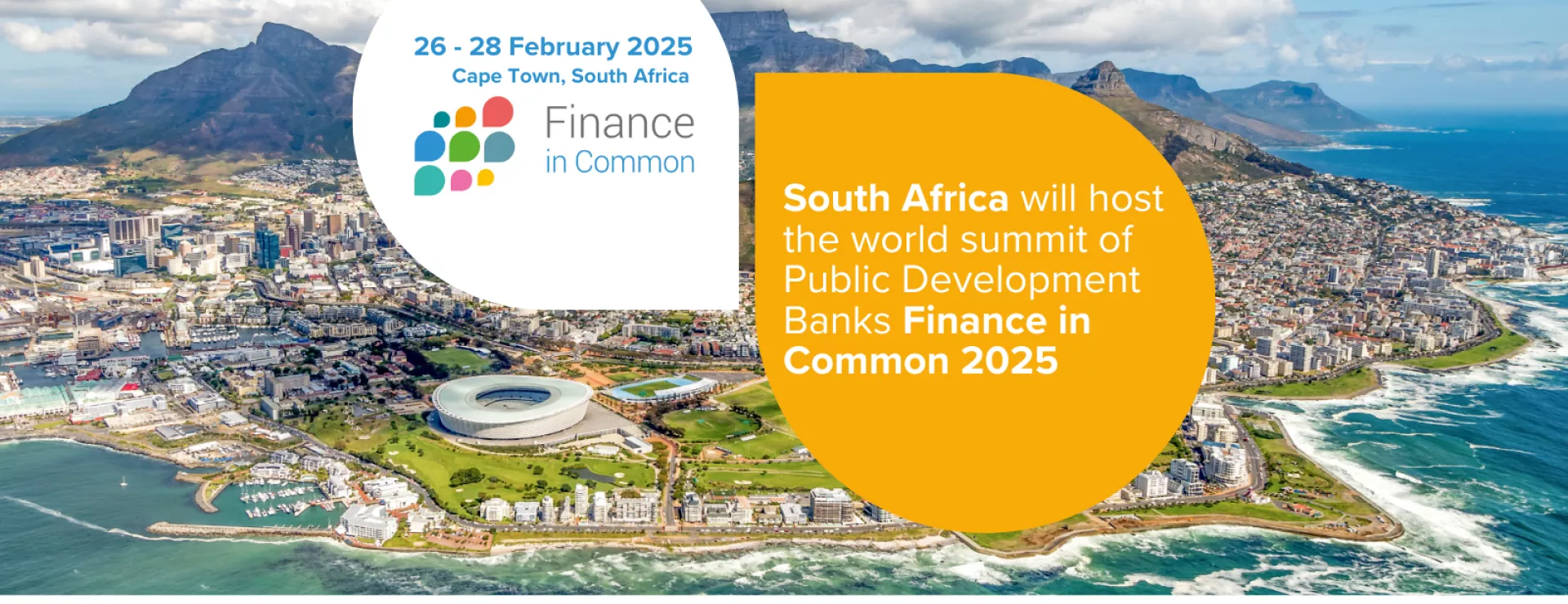

#FinanceinCommon2025
FiCS Summit 2025
We joined from 26-28 February 2025 in Cape Town, South Africa, for the 5th Finance in Common Summit (FiCS), co-hosted by the Development Bank of Southern Africa (DBSA) and the Asian Infrastructure Investment Bank (AIIB) with the support of Agence Française de Développement (AFD). The 2025 summit brought together global leaders, public development banks, the private sector, and philanthropies to reimagine and reshape sustainable finance.
FiCS 2025, themed “Fostering Infrastructure and Finance for Just and Sustainable Growth,” was a global platform for collaboration, financial innovation, and advancing the Sustainable Development Goals (SDGs).
A dedicated program on Sports, Art, and Culture for sustainable development was also included for the first time within the main agenda, positioning these innovative sectors as a powerful lever to address global challenges.
A dedicated summary will be published very soon.
Location: Cape Town International Convention Centre 1 (CTICC1), South Africa
The first Book of Reference on PDBs
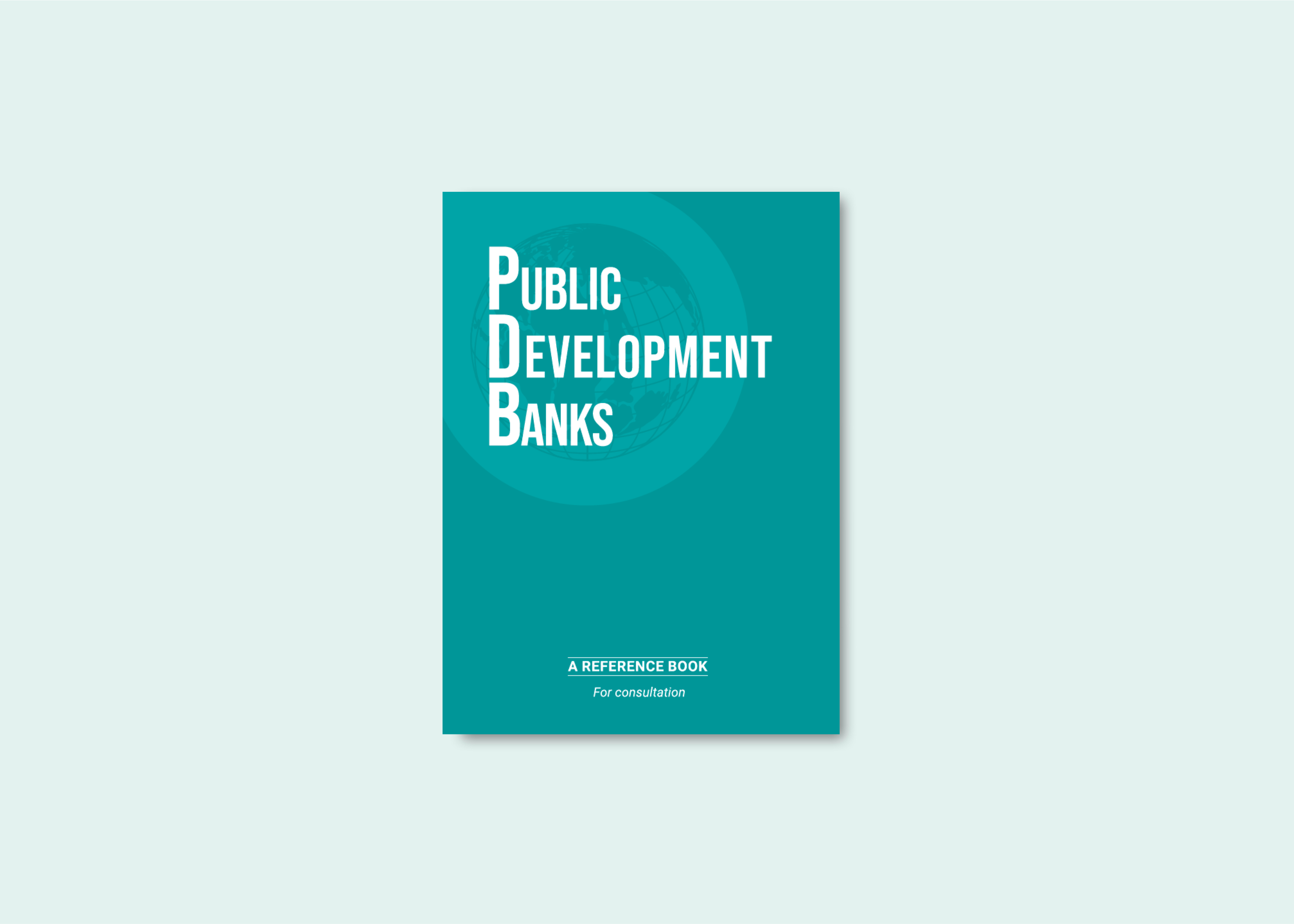
The first Book of Reference on PDBs
PDB Reference Book
Drawing from a comprehensive bibliography of over 400 academic and policy papers, the PDB Reference Book summarizes lessons learned from decades of development finance.
A revised version of the PDB Reference Book will be published in the perspective of the 4th International Conference on Financing for Development (FfD4), taking place in Sevilla (30 June – 3 July, 2025).
Discover the Finance in Common 2-pager!
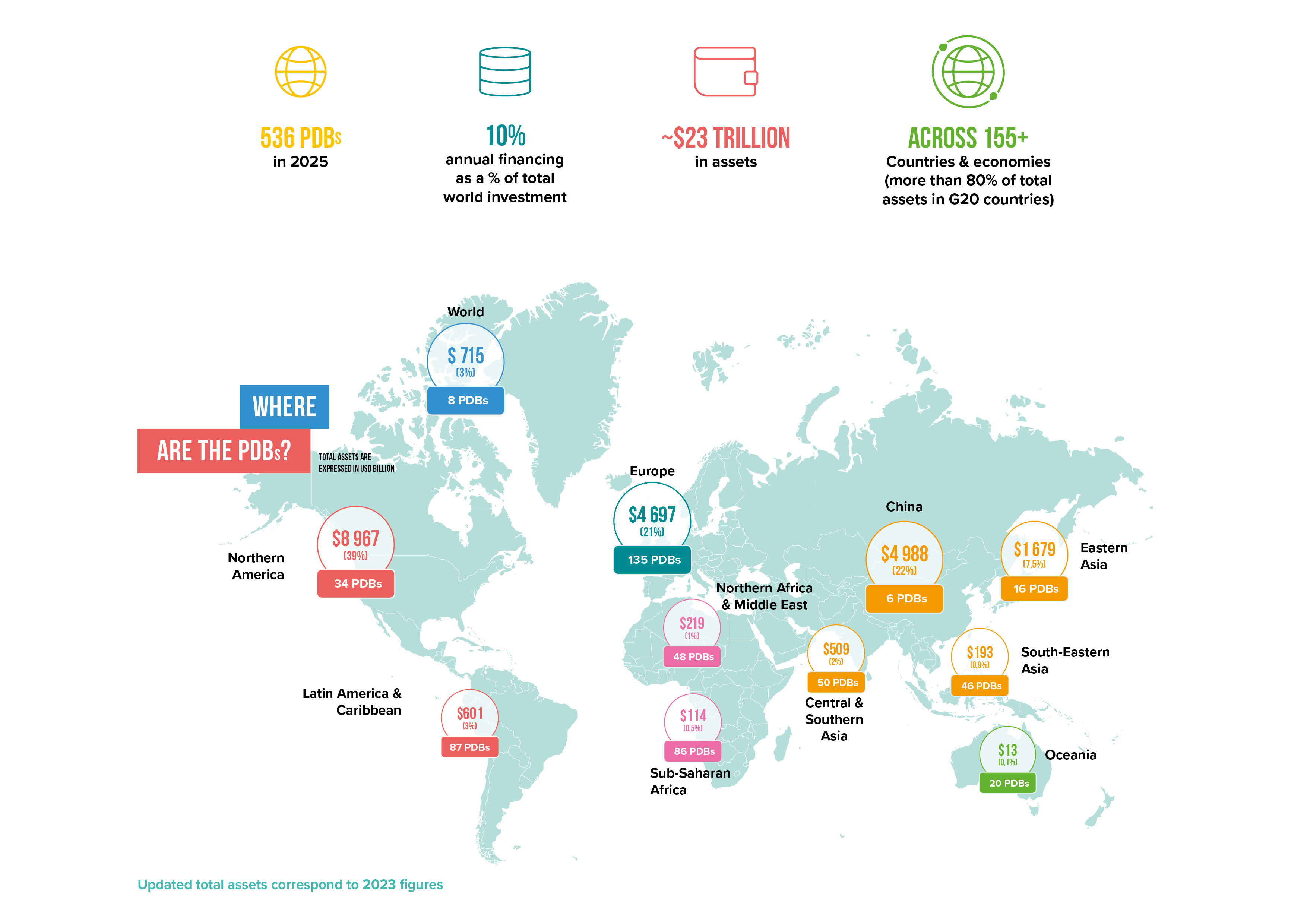
Discover the Finance in Common 2-pager!
We created this document to give you a quick and efficient overview of the Finance in Common movement. This document summarizes the actions carried out throughout the year and during the Finance in Common summits.
FiCS Booklet
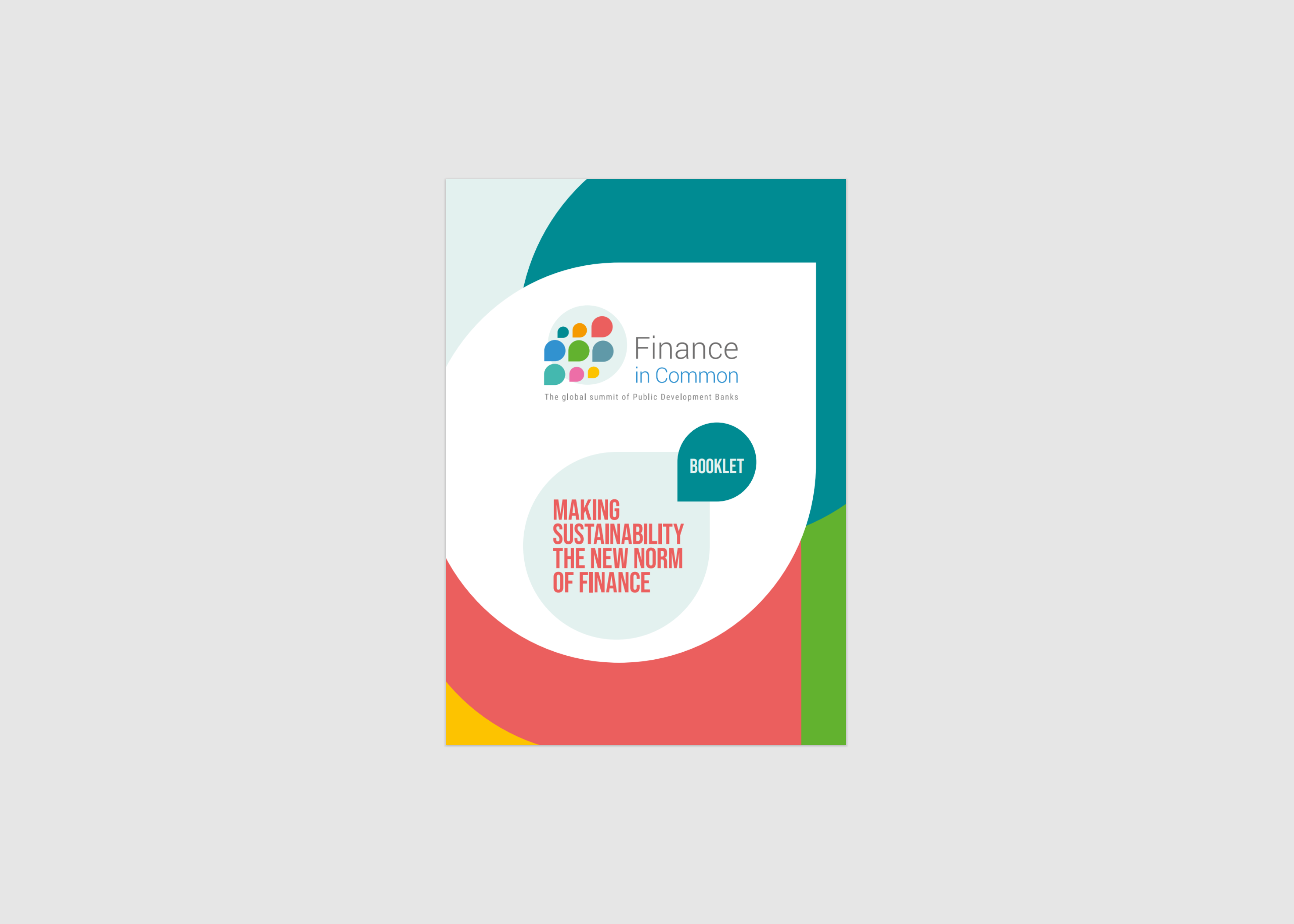
FiCS Booklet
Check out the Finance in Common's new booklet showcasing who we are, our different workstreams, how our governance is structured, and our future objectives.
What we do
Joint dEclaration
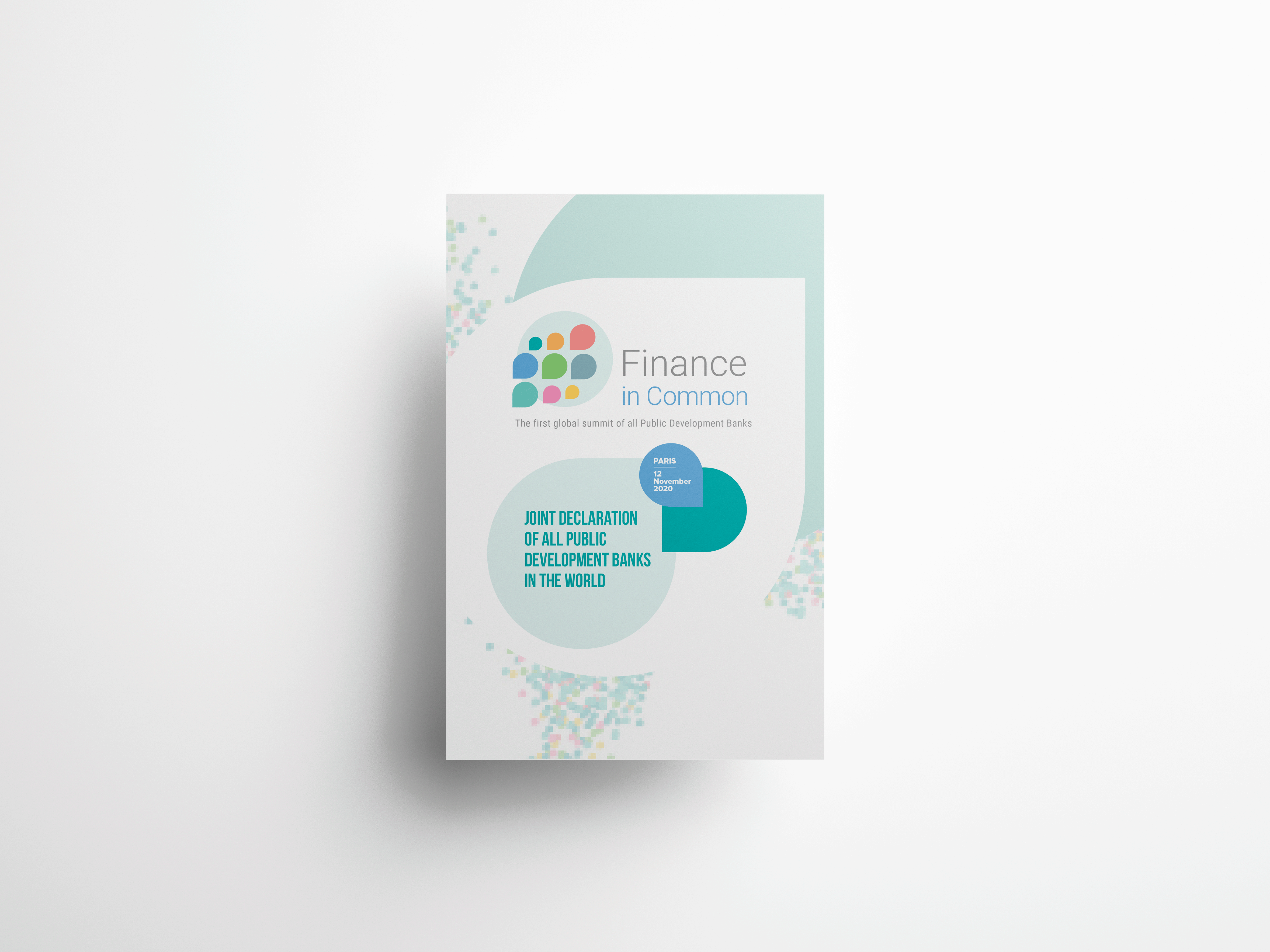
Joint dEclaration
During the initial Summit in 2020, Public Development Banks not only gathered for the first time ever, but they also signed an ambitious Joint Declaration.
In 2020, FICS gathered all PDBs worldwide for the first time during the initial FICS Summit in Paris, which led to a Joint Declaration, in which PDBs agree to shift their strategies, investment patterns, activities and operating modalities to contribute to the achievements of the SDGs and the objectives of the Paris Agreement. Since then, FICS has created a Secretariat, hosted by AFD, structured its inclusive governance through its Executive Committee, supported its now eleven Thematic Working Groups and organized other FICS summits, all to execute and implement the Joint Declaration.
Research
Research
Our research hub provides key insights, data, and analyses to drive innovation in sustainable finance. We explore critical topics such as climate finance, economic resilience, and the role of Public Development Banks (PDBs) in gloabal development.
- Discover in-depth reports and publications
- Access exclusive data on development finance
- Stay ahead with the latest research findings
